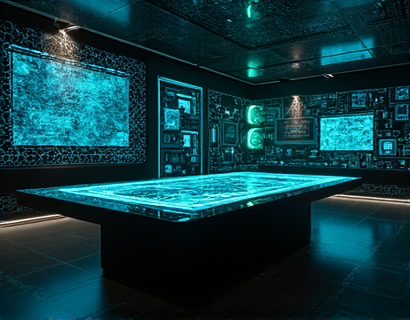Unlocking Ancient Wisdom: A Modern Guide to Historical Insights and Cultural Heritage
In an era where the pace of life often overshadows the richness of our past, there is a profound need to reconnect with the ancient wisdom and cultural heritage that have shaped our world. This guide aims to bridge the gap between historical insights and modern understanding, offering a comprehensive exploration of the timeless teachings and profound knowledge embedded in our shared history. Whether you are a history enthusiast, a cultural explorer, or simply someone seeking to deepen your appreciation of the past, this guide will provide valuable insights and perspectives that resonate with contemporary life.
The journey into ancient wisdom begins with an acknowledgment of the vast and diverse civilizations that have contributed to the tapestry of human history. From the monumental architecture of the Egyptians to the philosophical musings of the Greeks, each culture has left an indelible mark on our collective heritage. This guide will delve into the key aspects of these civilizations, highlighting their achievements, beliefs, and the lessons they offer us today.
Understanding Ancient Civilizations
The ancient Egyptians, for instance, were masters of engineering and astronomy. Their ability to construct the pyramids, monumental structures that have stood the test of time, speaks to their advanced knowledge of mathematics and architecture. The pyramids were not just tombs but also symbols of the pharaohs' divine right to rule and their connection to the gods. Today, these structures continue to inspire awe and provide insights into the religious and social structures of ancient Egypt.
Similarly, the Indus Valley Civilization, one of the earliest urban cultures, demonstrated remarkable planning and engineering skills. The cities of Harappa and Mohenjo-Daro featured sophisticated drainage systems and standardized weights and measures, indicating a high level of social organization and economic activity. The seals and artifacts found from this civilization offer a glimpse into their trade networks and cultural practices, which were far more advanced than previously thought.
Philosophical and Spiritual Insights
Beyond the tangible achievements, ancient cultures also provided profound philosophical and spiritual insights. The Greeks, for example, made significant contributions to philosophy, science, and the arts. Philosophers like Socrates, Plato, and Aristotle explored fundamental questions about existence, ethics, and knowledge. Their ideas continue to influence modern thought and continue to be relevant in contemporary discussions on morality, politics, and education.
The Eastern traditions, such as Buddhism and Taoism, offer different perspectives on life and the universe. Buddhism, founded by Siddhartha Gautama (the Buddha), teaches the path to enlightenment through the Four Noble Truths and the Eightfold Path. These teachings emphasize the importance of mindfulness, compassion, and the cessation of suffering. Taoism, with its emphasis on living in harmony with the natural world and the concept of Wu Wei (non-action), provides a holistic approach to life that resonates with modern environmental and wellness movements.
Art and Architecture
The art and architecture of ancient civilizations are not only testaments to their technical skills but also windows into their cultural values and beliefs. The Parthenon in Athens, a masterpiece of Doric architecture, was dedicated to the goddess Athena and symbolized the ideals of democracy and civic pride. The intricate carvings and sculptures that adorned the temple reflect the Greeks' deep reverence for their deities and their commitment to beauty and proportion.
In contrast, the temples of Angkor Wat in Cambodia showcase the grandeur of the Khmer Empire. This vast complex, dedicated to the Hindu god Vishnu, features elaborate bas-reliefs that narrate epic tales from Hindu mythology. The architecture and art of Angkor Wat not only demonstrate the engineering prowess of the Khmer but also provide insights into their religious practices and societal structure.
Preserving and Interpreting Ancient Knowledge
Preserving and interpreting ancient knowledge is a complex task that requires interdisciplinary approaches. Archaeologists, historians, and anthropologists work together to uncover and understand the remnants of past civilizations. Advances in technology, such as remote sensing, 3D modeling, and DNA analysis, have greatly enhanced our ability to study and preserve cultural heritage sites.
However, preservation efforts must be balanced with the ethical considerations of how we engage with these sites. Tourism, while beneficial for local economies, can also lead to degradation if not managed properly. Sustainable tourism practices, education, and community involvement are crucial in ensuring that ancient sites are protected for future generations.
Relevance to Modern Life
The lessons from ancient wisdom are not merely academic curiosities but offer practical guidance for modern life. The emphasis on community, balance, and harmony with nature found in many ancient traditions can inform contemporary approaches to sustainability and well-being. For instance, the concept of mindfulness in Buddhism aligns with modern mental health practices, promoting stress reduction and emotional resilience.
Moreover, the democratic ideals of ancient Greece continue to influence modern political systems. The principles of civic engagement, rule of law, and the importance of public discourse are foundational to many contemporary democracies. By studying these ancient systems, we can gain a deeper understanding of the challenges and successes of governance throughout history.
Cultural Heritage and Identity
Cultural heritage plays a vital role in shaping individual and collective identities. Understanding our roots and the histories of our ancestors can foster a sense of belonging and pride. This connection to the past can also inspire us to contribute positively to our communities and the world at large.
Educational programs that incorporate the study of ancient cultures can enrich students' learning experiences and broaden their perspectives. By exploring the achievements and challenges of past civilizations, students can develop critical thinking skills and a greater appreciation for diversity and inclusivity.
Conclusion
Unlocking ancient wisdom and cultural heritage is a journey that enriches our understanding of the world and our place in it. By bridging the gap between historical insights and modern understanding, we can draw valuable lessons that inform and inspire our lives today. Whether through the architectural marvels of ancient civilizations, the philosophical musings of great thinkers, or the spiritual teachings of Eastern traditions, the past continues to offer profound guidance for the present and future.
As we navigate the complexities of the modern world, let us remember the wisdom of those who came before us. Their achievements and insights are not just relics of a bygone era but timeless resources that can help us build a more informed, compassionate, and sustainable future.










































